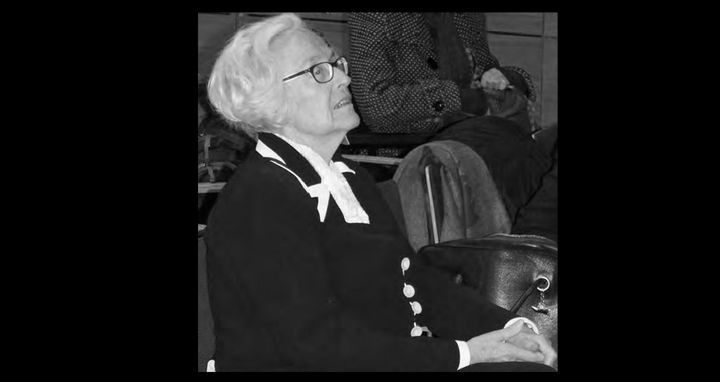Mourning founder Gisela Krebs
When a life comes to an end, we ask ourselves: What remains? For those close to the deceased person, the answer is shared experiences, memories, affection. In the case of Dr Gisela Krebs, who passed away on the March 6th, 2023 in Cologne, Germany at 91 years of age, the legacy is far greater. She has contributed towards alleviating currently incurable muscular disorders. To support this cause, at the age of 84, Gisela Krebs devoted a total of 600,000 euros from her fortune to a foundation which she dedicated to the Max Delbrück Center. Gisela Krebs’ aim was to support research into new therapeutic approaches for muscular dystrophies. In subsequent years, further generous donations followed from other dedicated individuals, taking the available funds to a total of two million euros. The endowment can be used for a period of ten years, which expires in 2025. The founder’s wish was for the sum to be completely used by then.
A family with a scientific tradition
Gisela Rose Marie Krebs came from a family with a tradition of science and medicine. Her father was a respected doctor in Hildesheim. Her brother Hans Adolf Krebs, almost three decades her senior, was a physician, specialist for internal medicine and professor of biochemistry who explained cellular respiration with his discovery of the Citrate Cycle and was awarded the Nobel Prize in 1953. His son, Lord John Richard Krebs, is a successful zoologist and behavioural scientist at the University of Oxford. And his granddaughter Sally Lowell is a renowned stem cell biologist at the University of Edinburgh.
The fact that most of the family has now settled in the United Kingdom can be explained by German history. The Krebs family was Jewish. Under the Nazi regime, Hans A. Krebs, an internationally recognised scientist of the day, had his licence to teach revoked. Krebs left Germany in mid-1933 and settled first in Cambridge and then in Oxford.
False identity under the Nazi regime
Gisela, born on the 21st of February 1932, was the only daughter from her father’s second marriage to a Catholic teacher. In 1937, her parents sent her to join her brother Hans in England, where she also attended school. She spent the summer holidays of 1939 in Hildesheim. Her return ticket (September 1th, 1939) was already purchased, but the outbreak of war prevented her departure. Being half-Jewish, Gisela came to the attention of the “Racial Hygiene Institute” in Cologne. In desperation, her mother asked a family
friend to falsely state that he was Gisela’s father. After the Second World War, Gisela Krebs studied economics and completed a doctorate. She later married in Israel, where some of her family lived. She ended her career in Cologne as a Professor of Finance.
“A courageous and clever woman”
Gisela Krebs’ aim in creating her foundation was to continue her family’s medical and scientific legacy and “put her inheritance to good use”. And she succeeded. The funding benefited the working group of Professor Simone Spuler at the Max Delbrück Center, in particular PhD Helena Escobar. In recent years, her research has been supported by funding from the Gisela Krebs Foundation. Escobar is working on a method to repair mutations leading to muscle atrophy using the gene editor CRISPR/Cas9. Together with colleagues, the ECRC researcher introduced the tool into human muscle stem cells using mRNA for the first time last year. This method is suitable for use in therapeutic applications. “Without the donation from this courageous and clever woman, and without the resulting scientific freedom, we would never have achieved this,” stated Simone Spuler. Thanks to Gisela Krebs.




